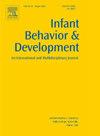Remote screening protocol for functioning and contextual factors (e-Followkids) in Brazilian children with biological risk in the first 2 years: A longitudinal prospective study
IF 1.9
3区 心理学
Q3 PSYCHOLOGY, DEVELOPMENTAL
引用次数: 0
Abstract
Children with biological risk may experience developmental delays, even in the absence of brain injury. Identifying warning signs and knowledge of contextual factors are vital to favor intervention. Telehealth can aid in screening by providing access for populations that face physical and social barriers. As such, the aim of this study was to describe the e-Followkids screening protocol and how its feasibility will be assessed. A multicentric longitudinal prospective study with 80 caregivers of children born with some form of biological risk: preterm, low birth weight or perinatal complications. Screening will be conducted remotely at 12, 18 and 24 months old, using internationally recognized instruments with valid psychometric properties. The body structure and function component will be assessed using the Survey of Well-Being of Young Children (SWYC), functional abilities with the Pediatric Evaluation of Disability Inventory - Computer Adaptive Test (PEDI-CAT), and participation using the Young Children's Participation and Environment Measure (YC-PEM). Environmental factors will be analyzed using the Child’s Context questionnaire, the environment portion of each section of the YC-PEM, Social Support Scale, the physical dimension of the Affordances in the Home Environment for Motor Development scale, and sociodemographic data. The data will be collected by filling out electronic forms (body structure and function, functional skills and contextual factors), telephone interviews or video calls (participation measures).
前2年具有生物学风险的巴西儿童的功能和环境因素远程筛查方案(e-Followkids):一项纵向前瞻性研究
即使没有脑损伤,具有生物学风险的儿童也可能出现发育迟缓。识别警告信号和背景因素的知识是至关重要的有利于干预。远程保健可以为面临身体和社会障碍的人群提供机会,从而有助于筛查。因此,本研究的目的是描述e-Followkids筛选方案以及如何评估其可行性。一项多中心纵向前瞻性研究,对80名具有某种生物风险的儿童的护理人员进行研究:早产、低出生体重或围产期并发症。筛查将在12、18和24个月大时远程进行,使用具有有效心理测量特性的国际公认仪器。身体结构和功能成分将使用幼儿健康调查(SWYC)进行评估,使用儿童残疾评估量表-计算机适应测试(PEDI-CAT)进行功能能力评估,并使用幼儿参与和环境测量(YC-PEM)进行参与评估。环境因素将使用儿童情境问卷、YC-PEM各部分的环境部分、社会支持量表、运动发展家庭环境能力量表的物理维度以及社会人口数据进行分析。数据将通过填写电子表格(身体结构和功能、功能技能和背景因素)、电话采访或视频通话(参与措施)来收集。
本文章由计算机程序翻译,如有差异,请以英文原文为准。
求助全文
约1分钟内获得全文
求助全文
来源期刊

Infant Behavior & Development
PSYCHOLOGY, DEVELOPMENTAL-
CiteScore
4.10
自引率
4.80%
发文量
94
期刊介绍:
Infant Behavior & Development publishes empirical (fundamental and clinical), theoretical, methodological and review papers. Brief reports dealing with behavioral development during infancy (up to 3 years) will also be considered. Papers of an inter- and multidisciplinary nature, for example neuroscience, non-linear dynamics and modelling approaches, are particularly encouraged. Areas covered by the journal include cognitive development, emotional development, perception, perception-action coupling, motor development and socialisation.
 求助内容:
求助内容: 应助结果提醒方式:
应助结果提醒方式:


